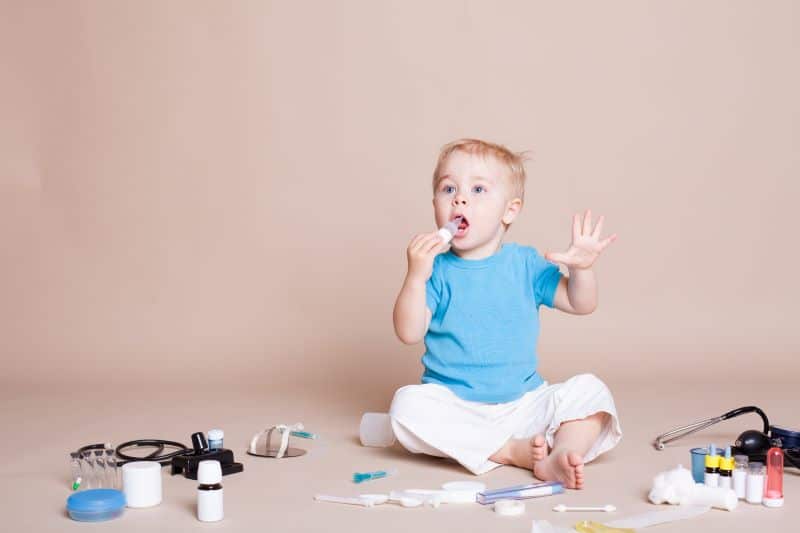Preventing accidental medicine poisoning of children

While medicine is designed to help us regain good health, any medication, whether prescription or off-the-shelf, has the potential to be harmful if taken at high dose or by a person not suffering from the condition the medicine is formulated to alleviate.
Children, with their small, developing bodily systems and inquisitive minds are particularly vulnerable to accidental medicine poisoning – and the consequences can be devastating.
We’ve put together our top tips for preventing accidental medicine poisoning of children who may live in, or visit, your home:
Out of sight, out of mind
Medicine bottles and medicine packets are small, and miniature versions of anything are enormously interesting to small children. And no matter how boring drug manufacturers try to make them look, pills and tablets will always have the look of lollies to a little tyke with a sweet tooth. If children can’t reach medicines, or better yet, don’t know they’re there in the first place, the odds of accidental medicine poisonings is dramatically reduced.
Keep medicines in high cupboards where they can’t be seen and never leave them on a kitchen counter to tempt an inquisitive child. If your medicine needs to be kept in the fridge, store it on a high shelf towards the back and not in the fridge door where it might be seen by little ones.
If you’re able to store your medicine some place with a child-proof latch, all the better.
Dosage counts – never crush with a spoon
Imagine if you accidently took twice as much medication as you were prescribed. If it was a particularly potent drug you might be worried about developing serious side effects. This scenario is a very real possibility if you get the dosage wrong for kids. Their bodies and much smaller and their organs and systems much more sensitive to pharmacological effects. Even a small mistake in dosage can be harmful rather than helpful.
Also use a proper dropper, syringe or measuring cup to accurately measure your children’s medication, and avoid cutting or crushing pills. Studies have shown that when you cut or crush tablets and pills much or the active pharmaceutical ingredients can be lost.
If you can’t find medication for your child in the correct dose amount or a liquid that can be measured accurately, ask your doctor for a compounded medication script in the exact dosage you need. National Custom Compounding can make up your child’s medication in precise doses so you can have piece of mind that your child is not talking too little or not enough – all we need is script from your doctor.
The Little Copy Cats Are Watching
Every parent knows that children love to copy what the grown-ups do, so try to take your own medication away from inquisitive eyes.
If you keep medicines in a handbag, put it in a safe place, especially when visiting homes where there are young children.
Correct medication disposal is important
If you flush unused or expired medication down the toilet, the drugs can have serious detrimental effect on the natural aquatic environment as well as the plants, animals and fish that dwell within.
And if you simply throw medication in this bin, an inquisitive little person may fish them out.
The correct way to dispose of expired or unused medication is to take them to a pharmacist for free and safe disposal.
If you think accidental poisoning has occurred
If you think accidental medicine poisoning has happened, you should immediately call the Poisons Information Centre on 13 11 26 and get the person to the nearest hospital emergency department as soon as you can.
If your child is in distress, and particularly if they’re having trouble breathing or are unusually drowsy call 000 immediately and ask for an ambulance.
